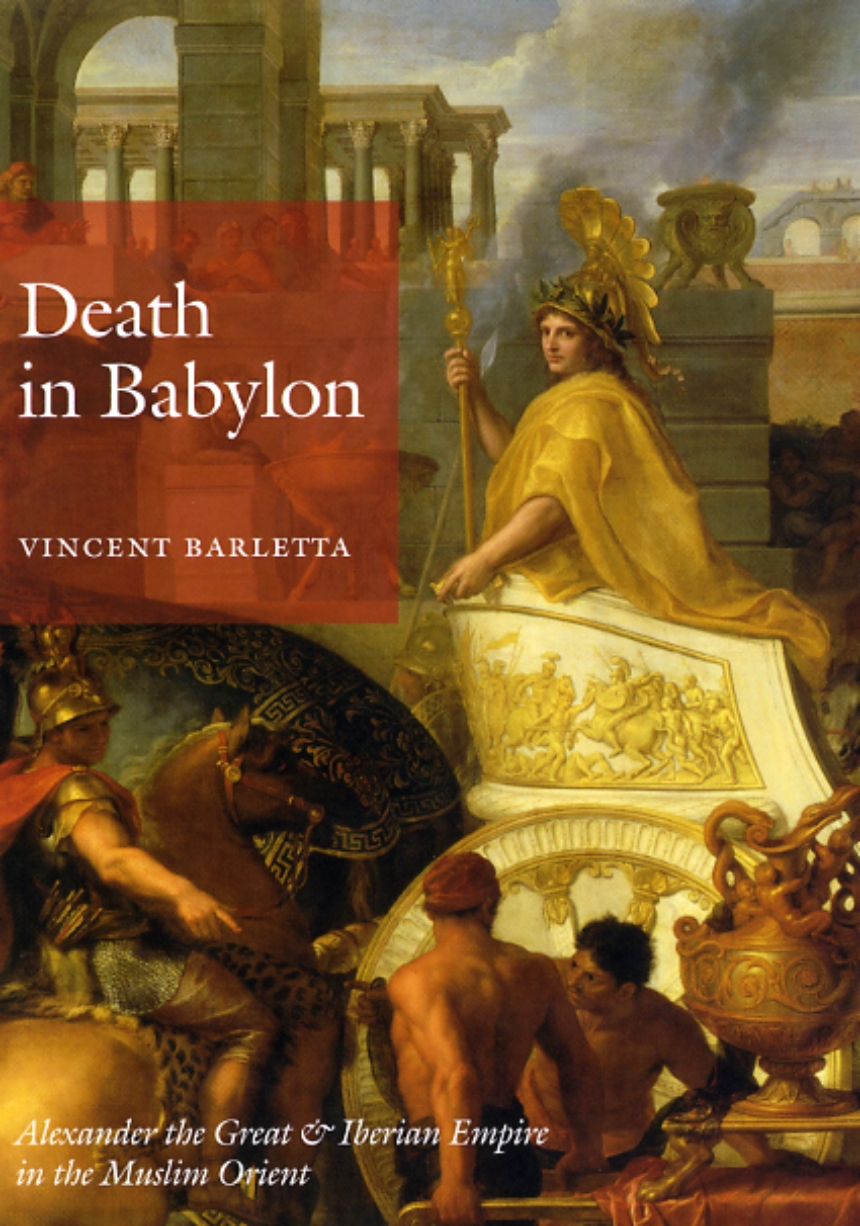Death in Babylon
Alexander the Great and Iberian Empire in the Muslim Orient
Death in Babylon
Alexander the Great and Iberian Empire in the Muslim Orient
Though Alexander the Great lived more than seventeen centuries before the onset of Iberian expansion into Muslim Africa and Asia, he loomed large in the literature of late medieval and early modern Portugal and Spain. Exploring little-studied chronicles, chivalric romances, novels, travelogues, and crypto-Muslim texts, Vincent Barletta shows that the story of Alexander not only sowed the seeds of Iberian empire but foreshadowed the decline of Portuguese and Spanish influence in the centuries to come.
Death in Babylon depicts Alexander as a complex symbol of Western domination, immortality, dissolution, heroism, villainy, and death. But Barletta also shows that texts ostensibly celebrating the conqueror were haunted by failure. Examining literary and historical works in Aljamiado, Castilian, Catalan, Greek, Latin, and Portuguese, Death in Babylon develops a view of empire and modernity informed by the ethical metaphysics of French phenomenologist Emmanuel Levinas. A novel contribution to the literature of empire building, Death in Babylon provides a frame for the deep mortal anxiety that has infused and given shape to the spread of imperial Europe from its very beginning.
272 pages | 2 halftones | 5 1/2 x 8 1/2 | © 2010
History: Ancient and Classical History
Literature and Literary Criticism: Romance Languages
Reviews
Table of Contents
Preface
Acknowledgments
Chapter 1. Death and the Other: An Introduction
Chapter 2. The Stinking Corpse: Alexander, the Greeks, and the Romans
Chapter 3. Oblivion: Iberian Empire in the Maghreb
Chapter 4. Immortality: The Promise of Asia
Chapter 5. Judgment: The Aljamiado Alexander
Chapter 6. Conclusions
Notes
References
Index